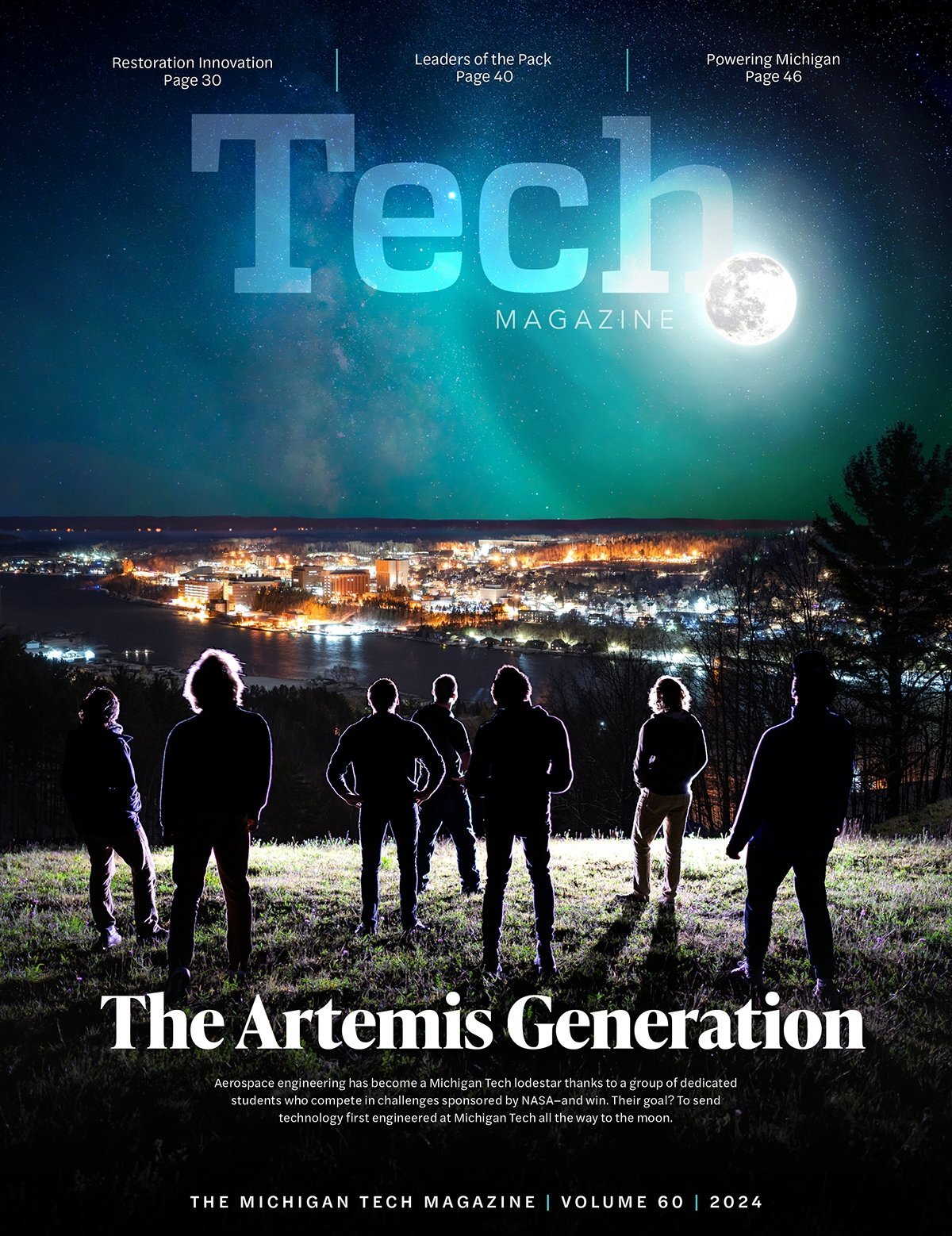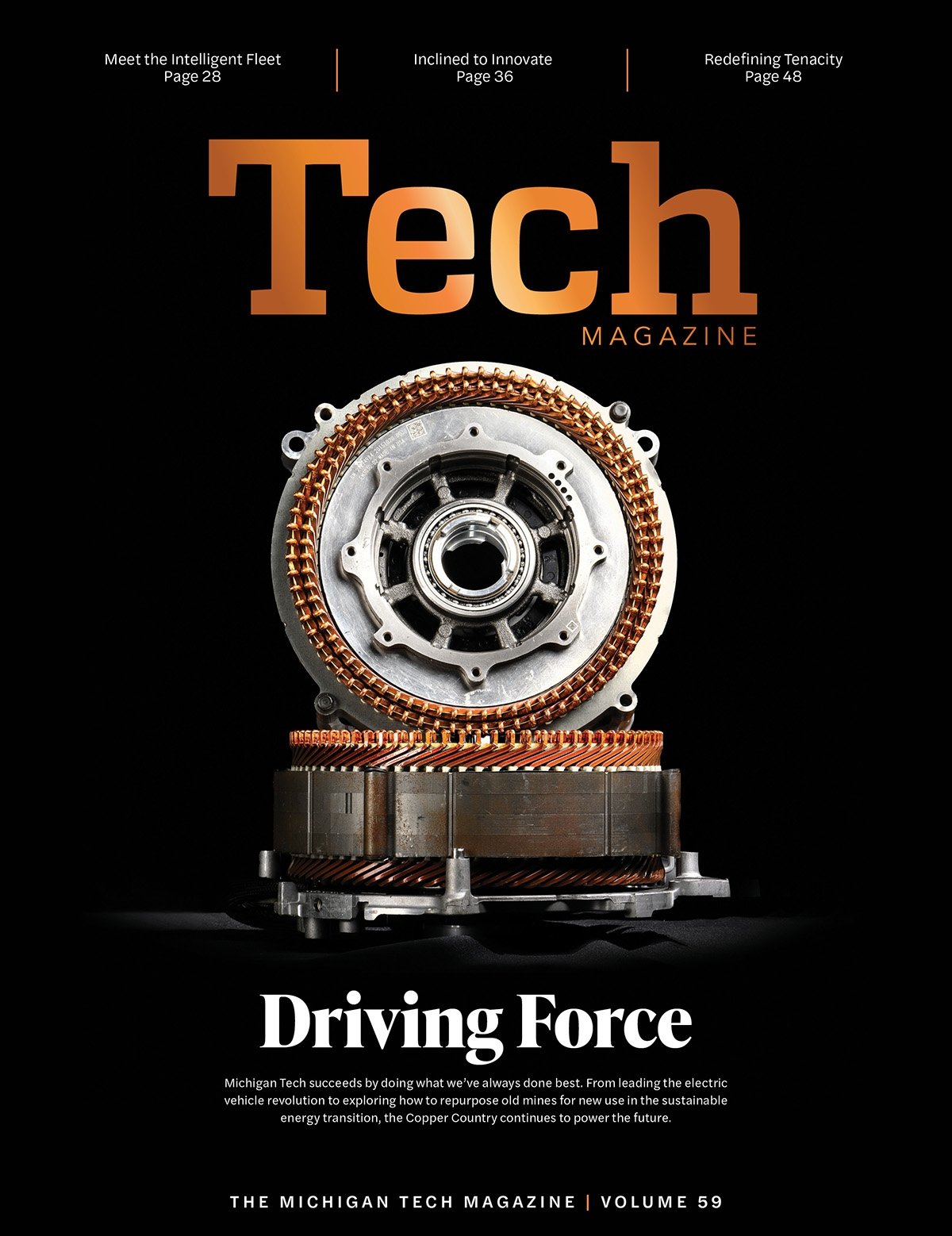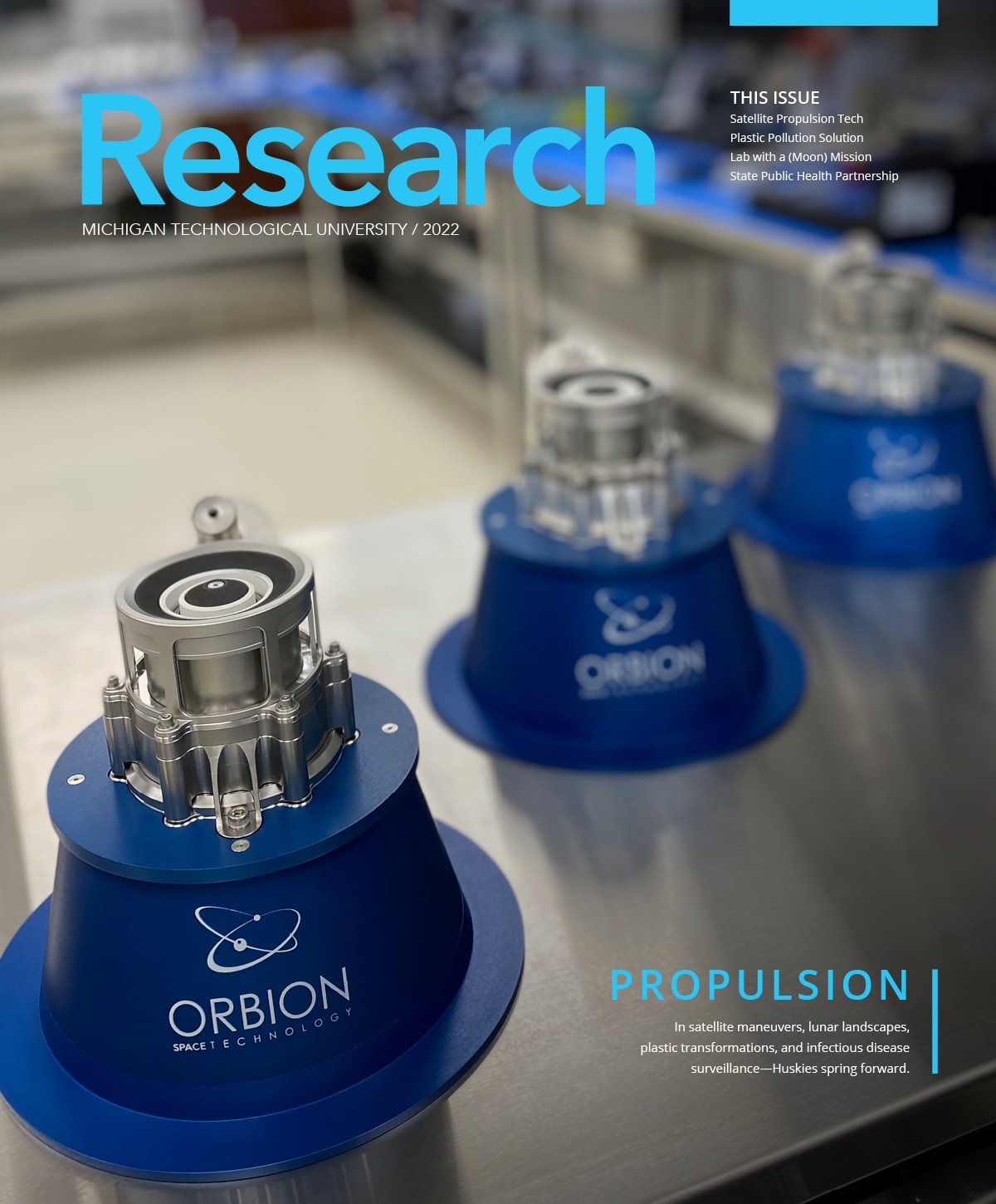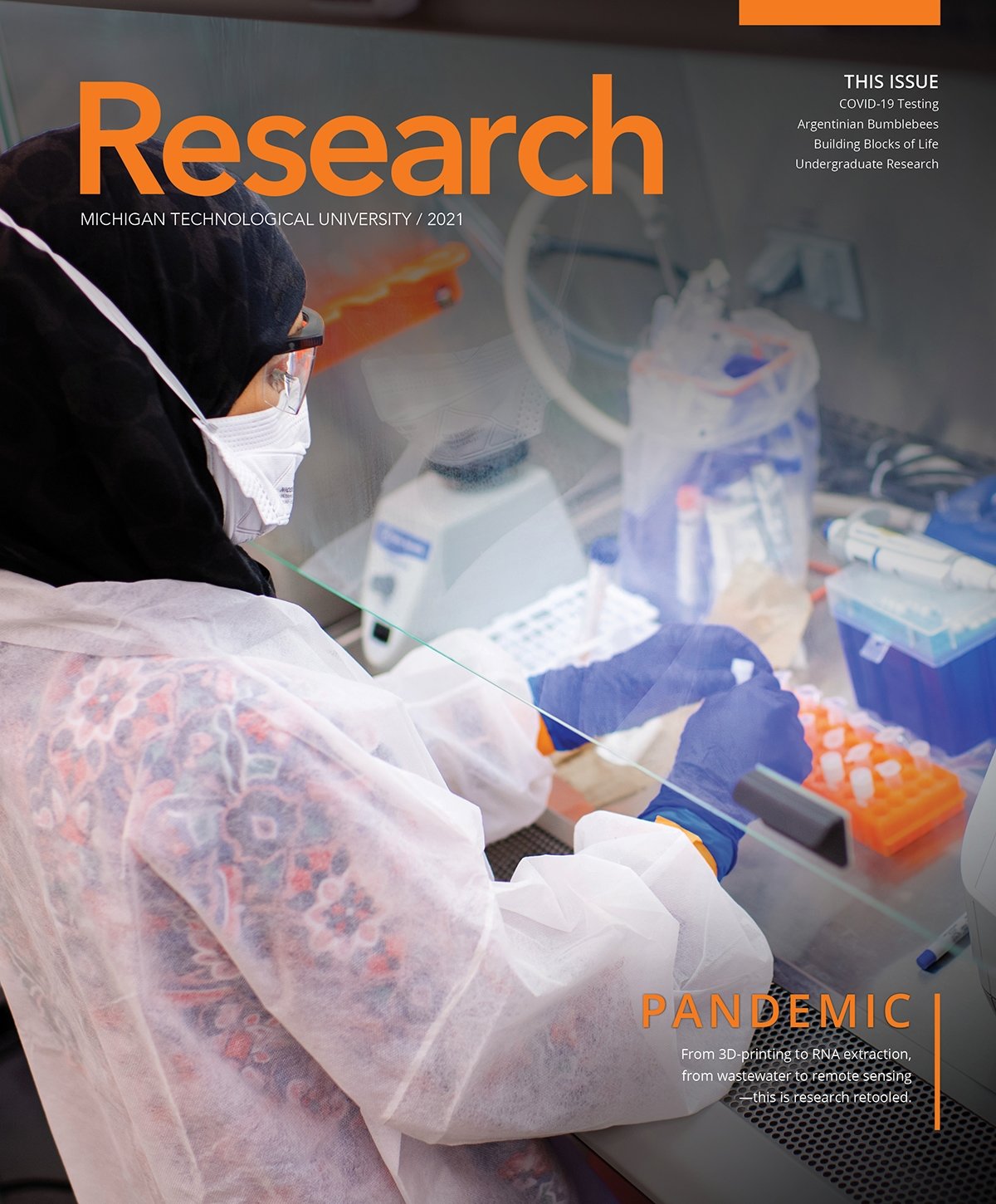-
The Artemis Generation
Michigan Tech's Planetary Surface Technology Development Lab is making a name for itself in the aerospace industry with innovative ideas and engineering prowess. We shadowed the PSTDL team for a year to learn the secrets of their success. It's 5:58 p.m.—two minutes to game time—and the Flat Moon Society is only just beginning to show signs of panic. Team captain Travis Wavrunek '20 '21 '24 scans the snow-covered Walker Lawn anxiously, looking for the team's regular goalie, Chuck Carey '22 '23, who is clearly running late. Other Society members huddle to revise their positioning and strategy. The referee blows the whistle, summoning players to the ice. The expression on Travis's face shifts from anxiety to resignation. Despite being one of the team's top scorers, he will have to fill in as goalie until Chuck arrives.
-
Leaders of the Pack
-
Powering Michigan: Michigan Tech Alumni Lead the Energy Industry Transformation
-
» Interdisciplinary
Research In Focus
-
» Interdisciplinary
Research in Focus: Team Science—Putting People First
-
» Interdisciplinary
Research in Focus: H-STEM Rising
-
Research in Focus: Shedding Snow, Powering UP
-
» Interdisciplinary
Research in Focus: Needles, Haystacks, and Sugar Chains
-
Q&A With Chemical Kim
-
» Interdisciplinary
1400 Townsend Drive
-
Dream Jobs: Chicken Tramper Ultralight Gear
-
Alumni Engagement

On the cover: Aerospace engineering has become a Michigan Tech lodestar thanks to a group of dedicated students who compete in challenges sponsored by NASA—and win. Their goal? To send technology first engineered at Michigan Tech all the way to the moon.
Planetary Surface Technology Development Lab members on top of Mont Ripley. Composite photo by Kaden Staley.
Published by University Marketing and Communications
- Editor
Rick White - Assistant Editor
Jessie Tobias - Writers
Wes Frahm
Calvin Larson '10
Cyndi Perkins '22
Stefanie Sidortsova - Designers
Bob Gross
Jen Withers - Photographer
Kaden Staley - Student Photographers
Daniel Staelgraeve '26
Conlan Houston '26 - Videographer
Ben Jaszczak '15 - Production Manager
Jodi Miller - Social Media Manager
Haley Goodreau - Web Editor
Megan Ross '00 - Contributors
Kevin Fales, Katalin Fodor, Ronaldo Lopez, Jen A. Miller, Tristan Spinski, Carinn Tryon '25 - Executive Editors
- Allison Carter '95, Executive Director of Marketing, University Marketing and Communications
- Natasha Chopp '06 '15 '17, Director of Research Operations and Faculty Liaison
- Rick Koubek, President
- John Lehman, Vice President for University Relations and Enrollment
- Jennifer Lucas ’09, Assistant Vice President of Alumni Engagement
- Dave Reed, Vice President for Research
- Ian Repp, Associate Vice President for University Marketing and Communications
- Bill Roberts, Vice President for Advancement and Alumni Engagement
- Comments to the editor:
magazine@mtu.edu - Research questions:
research@mtu.edu - Alumni inquiries and mailing address changes
alumni@mtu.edu



